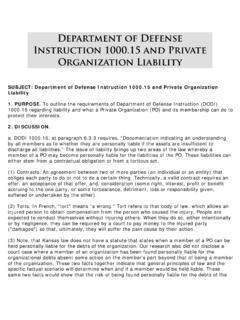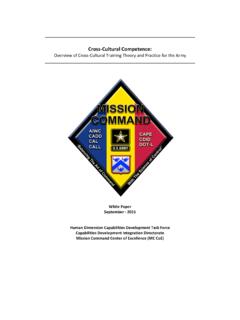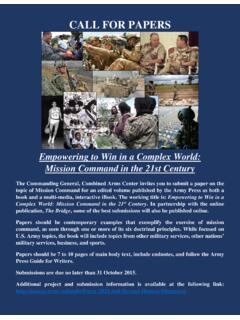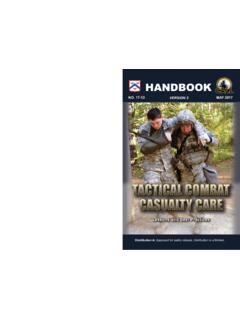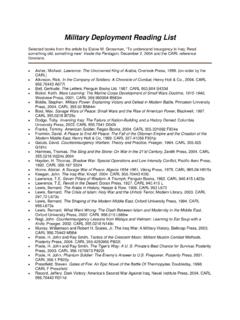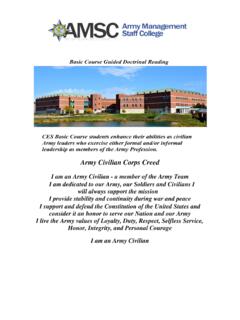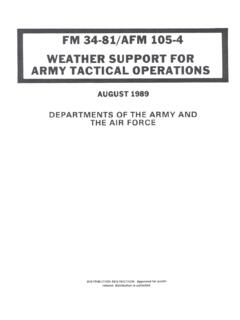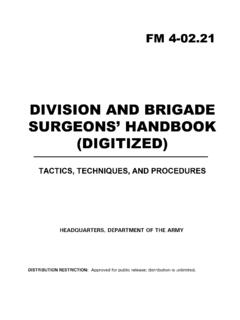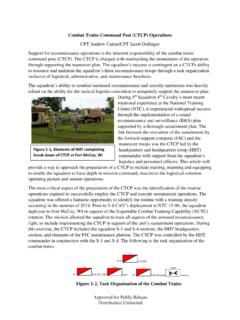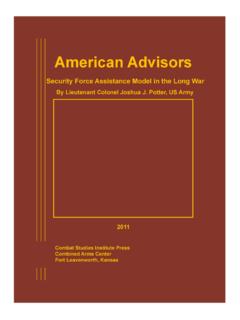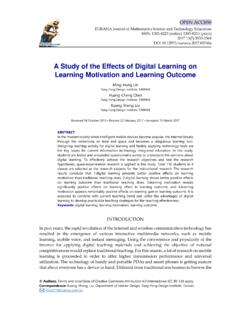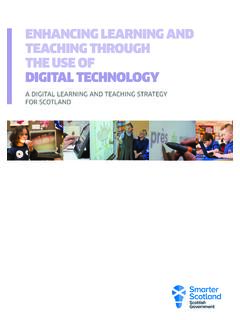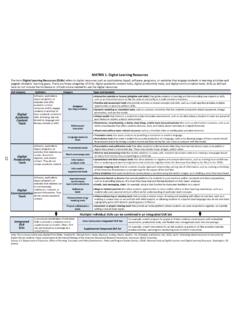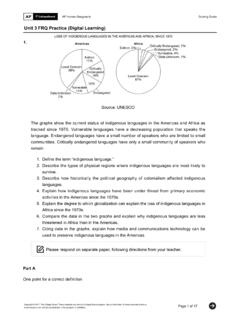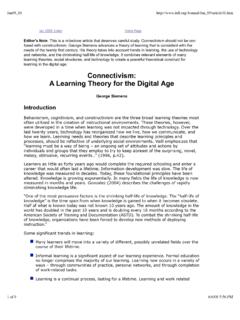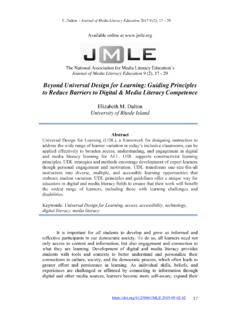Transcription of DIGITAL VERSION AVAILABLE
1 DIGITAL VERSION AVAILABLEA DIGITAL VERSION of this CALL publication is AVAILABLE to view or download from the CALL website: of this publication is welcomed and highly Knowledge Management in Support of Mission CommandA Primer for Senior LeadersFOLLOW CALL ON SOCIAL KM IN SUPPORT OF MISSION COMMANDiiiForewordKnowledge management (KM) has been an important part of Army doctrine for over a decade, and a significant element of mission command for nearly as long. In that time, KM programs have become embedded in Army and Department of Defense organizations at all levels and integral to operational success. Yet, we still find senior Army leaders who are unsure how to employ their KM personnel, and combat units at the Combat Training Centers unable to employ the knowledge management process , this primer, developed using lessons learned from Soldiers in the field and the Combat Training Centers, has been prepared by the Army Knowledge Management Proponent.
2 It is intended to provide senior Army leaders a concise understanding of KM and what they can do to improve important organizational processes ( , the military decisionmaking process and operations process). It briefly discusses basic KM concepts, the roles of senior leaders in KM, and provides some techniques senior leaders may choose to employ in managing a KM primer incorporates lessons learned from a variety of organizations which have established successful KM programs. The most important of these lessons is that senior leaders must actively participate in their KM program if their KM program is to be successful. I recommend Army senior leaders read this primer as a means of improving organizations across the Army. Knowledge management enables commanders to make informed, timely decisions, despite the uncertainty of operations.
3 (ADP 3-0, Operations) James J. Mingus Major General, USA Director, Mission Command Center of Excellence vEXECUTING KM IN SUPPORT OF MISSION COMMANDE xecuting Knowledge Management in Support of Mission CommandTable of ContentsExecuting Knowledge Management in Support of Mission Command1 Appendix A. The Knowledge Management Team15 Appendix B. Knowledge Management Maturity Model17 Appendix C. References19 Center For Army Lessons LearnedDirectorCOL Michael E. PappalLead AuthorsMr. Jimmie L. Claunch, Knowledge Management Capabilities Integrator, Army Knowledge Management Proponent OfficeMr. Joseph T. Koskey, Program Manager, Army Knowledge Management Proponent OfficeContributing AuthorsMr.
4 Michael E. Kitchens, Concepts and Doctrine Analyst, Army Knowledge Management Proponent OfficeMr. David M. Van Laar, Force Management Chief, Army Knowledge Management Proponent OfficeThe Secretary of the Army has determined that the publication of this periodical is necessary in the transaction of the public business as required by law of the otherwise stated, whenever the masculine or feminine gender is used, both are : Any publications (other than CALL publications) referenced in this product, such as ARs, ADPs, ADRPs, ATPs, FMs, and TMs, must be obtained through your pinpoint distribution KM IN SUPPORT OF MISSION COMMANDE xecuting Knowledge Management in Support of Mission Command The concept of collecting, analyzing, and distributing knowledge is not new to the American Army. What is new is the sheer, overwhelming volume of tactical and organizational information modern organizations must deal with, and how we think about the management of that knowledge a concept Army senior leaders must understand.
5 Modern Army organizations simply cannot succeed if they fail to effectively manage the process of acquiring and using that knowledge. Recent trends from the Combat Training Centers (CTCs) and Mission Command Training Program (MCTP) indicate that units often fail in three main areas: developing and maintaining an effective common operational picture (COP), understanding critical paths and battle rhythm, and ability to reliably access information across the Army. Specifying knowledge management (KM) tasks for the commander imparts a direct responsibility on the part of the commander and all senior leaders to establish and execute a KM program. Mission command doctrine and KM doctrine have become a single operational concept, inseparably linked. The key takeaways from this primer are that KM is integral to mission command, enables the operations process, enables decision making, and improves staff Management is Integral to Mission CommandMission command is an inherent part of all operations.
6 Army Doctrine Reference Publication (ADRP) 6-0, Mission Command, defines three commander s tasks, directly or indirectly enabled by KM: (1) drive the operations process, (2) develop teams, and (3) inform and influence audiences. The most important of these tasks drive the operations process is directly enabled by Management Enables the Operations ProcessAn effective KM program provides the means to deal with the inherent problems involved in collecting and managing the knowledge necessary to accomplishing that task. Success in operations demands timely and effective decisions based upon applying judgment to AVAILABLE information and knowledge. As such, commanders and staffs seek to build and maintain situational understanding throughout the operations process. Situational understanding is the product of applying analysis and judgment to relevant information to determine the relationships among the operational and mission variables to facilitate decision-making.
7 (Army Doctrine Publication [ADP] 5-0, The Operations Process)2 CENTER FOR ARMY LESSONS LEARNEDThis is actually another way of describing the Army s KM objective: Getting the right information, to the right people, in the right format, at the right time, in order to arrive at the right decision. Knowledge Management Enables Decision MakingSituational understanding is at the foundation of the decision-making process. That situational understanding is at the heart of the KM process enabling knowledge flow to enhance shared understanding, learning , and decision making.. knowing if, when, and what to decide and understanding the consequences of any decision. Commanders first seek to understand the situation. As commanders and staffs receive information, they process it to develop meaning. Commanders and staffs then apply judgment to gain understanding.
8 This understanding helps commanders and staffs develop effective plans, assess operations and make quality decisions. (ADP 6-0, Mission Command)KM assists senior leaders in balancing the art of command with the science of control by enabling the most important leadership task decision making (see Figure 1).Figure 1. KM enables decision makingThe objective of KM is to create shared understanding through the alignment of people, processes, tools, and organization in order to increase collaboration and understanding. The resulting improved knowledge flow enhances situational understanding, manifesting itself in better decisions. KM enables senior leaders to make informed, timely decisions despite the uncertainty of operations or the type of operations. 3 EXECUTING KM IN SUPPORT OF MISSION COMMANDK nowledge Management Improves Staff EffectivenessAn effective KM program keeps the staff focused on the KM tasks of creating, organizing, applying, and transferring knowledge.
9 Staffs employ KM to provide commanders with the information necessary to create and maintain their understanding of the situation and to make effective decisions. Staffs use information and KM practices to assist commanders in collecting, analyzing, and disseminating information. This cycle of information exchange provides the basis for creating and maintaining understanding. ADP 6-0 defines four primary staff tasks critical to the conduct of mission command: (1) Conduct the operations process, (2) Conduct KM and information management, (3) Synchronize information-related capabilities, and (4) Conduct cyber electromagnetic activities. The Senior Leader as the Knowledge LeaderThe senior leader, as the central figure in mission command and the operations process, must also be intimately involved in the methods that provide the information necessary to those processes and the commander s most critical function decision making.
10 Mission command strives to establish the mindset that situational understanding comes from a balance of bottom-up and top-down knowledge processes. This requires that senior leaders also function as their organizations knowledge leaders. These fundamental knowledge processes, the foundation of which is individual tacit knowledge, require the same kind of leadership that ADP 3-0 requires of the decision-making and operations process. In other words, senior leaders must drive the knowledge processes that are fundamental to mission command and operations. Successful KM programs require senior leader involvement. To be fully successful in exercising mission command, organizations require an effective KM program. Leaders at all levels must drive KM as much as they drive the operations process. This includes the personnel and organizations involved in their KM program: the knowledge management officer (KMO), KM section (if authorized), knowledge management representatives (KMRs), and the knowledge management working group (KMWG).
